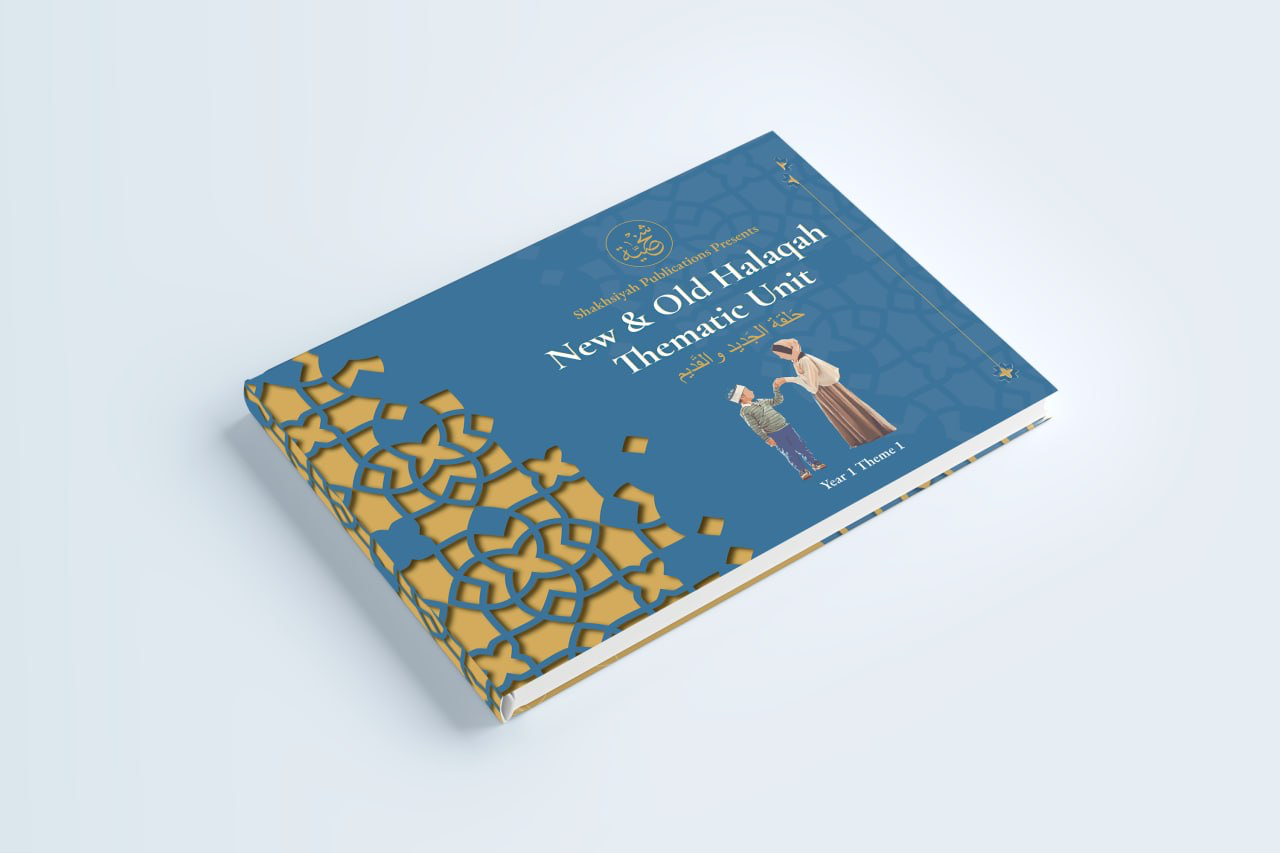New and Old
New & Old guides young learners on a transformative journey of spiritual growth and knowledge acquisition. Rooted in the belief that knowledge is an obligation (fard) upon every Muslim, learners reflect on Allah’s divine command to “Iqra” (Read). Learners are given opportunities to learn about and apply etiquettes of seeking knowledge in their daily lives, reflecting on the benefits and impacts of each action. Learners will also reflect on how the sunnah can be applied to their own lives and how it can benefit them on their path to seeking knowledge. Learners will also learn about the importance of setting intentions (niyyah) and how our Islamic identity is at the core of who we are. Throughout the theme, learners gain an understanding of their role as Muslims and life-long learners in their homes, schools, as well as their local and global communities.
$49.99
Description
New & Old guides young learners on a transformative journey of spiritual growth and knowledge acquisition. Rooted in the belief that knowledge is an obligation (fard) upon every Muslim, learners reflect on Allah’s divine command to “Iqra” (Read). Learners are given opportunities to learn about and apply etiquettes of seeking knowledge in their daily lives, reflecting on the benefits and impacts of each action. Learners will also reflect on how the sunnah can be applied to their own lives and how it can benefit them on their path to seeking knowledge. Learners will also learn about the importance of setting intentions (niyyah) and how our Islamic identity is at the core of who we are. Throughout the theme, learners gain an understanding of their role as Muslims and life-long learners in their homes, schools, as well as their local and global communities.
How does halaqah work?
- Halaqah is the pedagogy used by Prophet Muhammad (saw)
- During halaqah, the educator and learners sit together on the floor, in a circle facing each other.
- Halaqah begins with Bismillah and Qur’an recitation and ends with a group du’ā which connects to the topic that has been discussed.
- All learners are encouraged to participate. Our halaqah is dialogic – this means that normal learners engage in extended discussion amongst themselves with educators facilitating the dialogue through key questions and talking points.
- There is always room for direct instruction and storytelling, both of which are important. However, the main objective is to learn through dialogue drawing on the learners’ existing knowledge and building on it.
- Educators are primarily responsible for contextualization of the information in a way that meets the needs of their learners.
- Please refer to our Dialogic ḥalaqah: A Muslim Educator’s [Murrabi] Guide resource for more information about setting up ḥalaqah.
How do I use this Halaqah Thematic Unit?
Learner agency to develop shakhsiyah: Learners must be active participants in the learning process, which is why before the beginning of each ḥalaqah, learners will be engaging in research and/or thinking preparation. This preparation task is key in handing over ownership of their own learning to learners. This is done through developing more dialogic sessions, with the educator serving as the facilitator. Within the daily ḥalaqah plans, you will find three sections: key concepts, key questions, and educator notes and talking points. The key concepts are broader concepts that learners will “take away” from the session. These concepts serve as an opportunity for contextualization and relating the concepts to other subjects or topics, deepening learners’ understanding of the world around them.
Key questions: The key questions are designed to build on one another and create dialogue that naturally deepens learning. The questions are also designed to be a guideline for you, you may not get to all of the questions in the lesson. That’s okay! It is supposed to be dialogic and it is important to know when to redirect learners and when to “lean-in” to a productive discussion.
Educator notes: It is crucial for educators to have the knowledge base for a theme. The educator notes offer background information that will assist the educator in facilitating the ḥalaqah session. They are not designed to be a one-stop shop, the educator will still have to do their own research into a specific topic. Additionally, educators are encouraged to supplement the lessons with resources and questions that would best meet the needs of the learners in their care.


Reviews
There are no reviews yet.